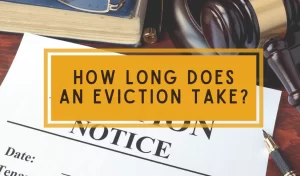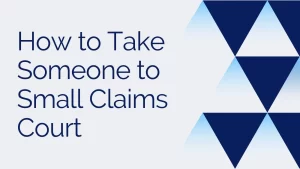What is a Case Management Conference in Family Court?
A case management conference (CMC) is an important event in family court cases. It is a meeting between the judge and the parties in a case to discuss case progress and set timelines. Understanding what happens in a CMC can help you prepare and get the most out of the conference.
When Does a CMC Happen?
A CMC typically occurs early in a case, soon after the initial filings. However, a judge can call a CMC at any time to check on case progress. The court will send you a notice with the CMC date, time, and location. Be sure to calendar this date as soon as you receive the notice.
What is Discussed at a CMC?
The judge has wide discretion on CMC discussions but some common topics include:
- Case status: The judge will ask about progress made so far. Be prepared to explain where you are at with legal paperwork, discovery, negotiations, and more.
- Discovery plan: The judge will want to know your plan for evidence collection and sharing. Discovery includes interrogatories, depositions, requests for production of documents, and more.
- Motion schedule: The judge will ask if any motions have been filed or are anticipated. Motions that often come up include temporary orders, bifurcation, and discovery disputes.
- Trial readiness: Even early on, the judge will discuss your readiness for trial. This includes subpoenaing witnesses, retaining experts, and more.
- Settlement options: The judge may explore settlement options with you. Be prepared to discuss what settlement efforts you have made or are willing to consider.
Why Attend the CMC?
It is vital that you thoroughly prepare for and attend the CMC. Here are key reasons this hearing matters:
- Judicial expectations: The conference lets the judge share their expectations for the case in terms of deadlines, trial readiness, and behavior.
- Opportunity to argue: The CMC gives you a chance to directly address the judge and advance your positions.
- Status and deadline setting: Progress and deadlines are discussed. Missing a CMC could mean crucial dates are set without your input.
- Good faith determination: Your participation shows the court your willingness to move the case forward.
Who Can Attend the CMC?
If you are a party to the case, you have a right to attend the CMC. Other attendees often include:
- Spouses: In divorce and separation cases, both spouses can attend.
- Partners: Unmarried couples can both attend hearings regarding custody, support, and more.
- Children: Minor children do not attend CMCs, but older teens may attend or meet with the judge separately in some cases.
- Attorneys: Attorneys for any party may attend and represent their client’s interests.
- Court reporter: A court reporter will transcribe discussions for the record.
- Judge: A family court judge oversees the CMC and leads the discussions.
How Should I Prepare for the CMC?
Thorough preparation is vital for a successful CMC:
- Review your papers: Understand your filings and be ready to discuss them intelligently. Bring copies to reference.
- Organize evidence: Have evidence like financial records neatly organized to share or discuss.
- Know case status: Be prepared to explain where you are at with legal paperwork, discovery, negotiations, and more.
- Anticipate issues: Think through likely issues that will come up and how you want to address them.
- Prepare arguments: Practice any arguments or positions you want to advance to the judge.
- Consider options: Be ready to discuss possible settlement options or trial readiness plans.
- Consult counsel: Talk to your attorney ahead of time so you present a united front.
- Remain flexible: While preparing your position, stay flexible to compromise if needed.
What Happens After the CMC?
Once the CMC concludes, the court will issue written orders summarizing deadlines, agreements, and expectations discussed. Be sure to follow these diligently. Other next steps include:
- Discovery: If a discovery plan was set, start evidence collection and sharing.
- Motions: File any motions according to the schedule set by the judge.
- Compliance: Comply fully and on time with all agreements and orders.
- Trial preparation: Begin preparing for trial by interviewing witnesses, hiring experts, etc.
- Settlement talks: If settlement was explored, engage in earnest negotiations toward resolution.
- Status updates: Provide the court any required status updates leading up to trial.
Can I Reschedule the CMC?
It is possible to reschedule the CMC but requires a formal request to the court:
- Notice of request: File a written notice asking to reschedule. Explain your reasons.
- Opposing party input: Send the notice to the opposing party and include their input in your filing.
- Timing: Request rescheduling as early as possible, as soon as the need arises. Last minute requests are disfavored.
- Alternatives: Consider alternatives like telephonic appearances before asking to reschedule.
- Court discretion: The judge decides whether to allow rescheduling. They will balance judicial economy versus fairness.
- New date: If granted, the court will set a new CMC date and send notice. Attend on the new date set.
While rescheduling is possible with advance notice and for good cause, it is best to avoid if at all possible. CMCs set important case progress in motion.
What if I Miss the CMC?
It is extremely risky to miss a scheduled CMC without permission from the court. Potential consequences include:
- Bench warrant: The judge could issue a bench warrant for your arrest.
- Default judgment: The court may enter default orders or a final judgment against you.
- Fines or sanctions: You could face monetary fines or other sanctions for contempt of court.
- Weakened case: Missing the CMC badly undercuts your case and shows disrespect for the court.
- Rescheduling refusal: The court may decline any request to reschedule the missed CMC.
Can a CMC be Conducted Remotely?
Many courts now offer remote options for CMCs, such as by telephone or videoconference. Check with the court for their policies and procedures. Things to ask include:
- Availability: Is remote appearance allowed for a CMC? What about hybrid in-person and remote?
- Procedure to request: What is the process to request appearing remotely? Make the request in the time and manner required.
- Technology access: Ask if the court provides the technology needed or if you must have your own. Testing in advance is wise.
- Etiquette: Inquire about proper etiquette for remote appearances. Dress professionally, ensure good connectivity, mute when not speaking, and more.
- Effective participation: Ask how to participate effectively when attending remotely. Speaking loudly and clearly and minimizing distractions helps.
Can I Get a Continuance After the CMC?
If more time is needed after the initial CMC, you can request a continuance:
- Written motion: A continuance request requires a written motion explaining the rationale.
- Reason required: Provide a specific, compelling reason. Overwork, inconvenience or unreadiness are usually insufficient.
- Opposing party: Give notice of the motion to the opposing party and include their position. Most continuances require agreement.
- Timing: Requests are more likely granted if made well in advance of deadlines.
- Court discretion: The judge decides whether there is good cause for a continuance. Understand their reasoning if denied.
- Conditional orders: The court may grant a short continuance but order parties to complete certain steps first.
- New deadlines: If granted, the court will issue an order with any new deadlines or CMC date.
Conclusion
The case management conference plays a vital role in family court cases. Being prepared and engaged in the CMC will help your case progress smoothly. Listen closely, take notes, and comply fully with any orders issued. If difficulties arise requiring a change in deadlines, be sure to make requests to the court appropriately. With diligence and good faith, the CMC can be an effective tool toward timely case resolution.
FAQ
Q: Can I bring notes to a CMC?
A: Yes, it is recommended to bring any notes, documents, evidence, or calendar that will help you discuss case specifics, deadlines, and more at the CMC. Just be sure notes do not serve as a script and that you can participate in live discussions.
Q: What should I wear to a CMC?
A: Dress professionally as you would for court. Business attire shows respect for the judge and formality of the proceedings. Avoid overly casual clothing.
Q: What if I don’t understand everything said in the CMC?
A: If you do not understand something during the conference, respectfully ask questions until you do. Judges would rather clarify than have orders misunderstood. Take careful notes.
Q: Can I speak directly to the other party in the CMC?
A: No, all communication should be directed to the judge. Avoid addressing the other party directly during the CMC even if they speak to you.
Q: How early should I arrive before the scheduled CMC time?
A: Arrive at the court at least 30 minutes early to go through security and find your courtroom. Tardiness to a CMC reflects very poorly.







